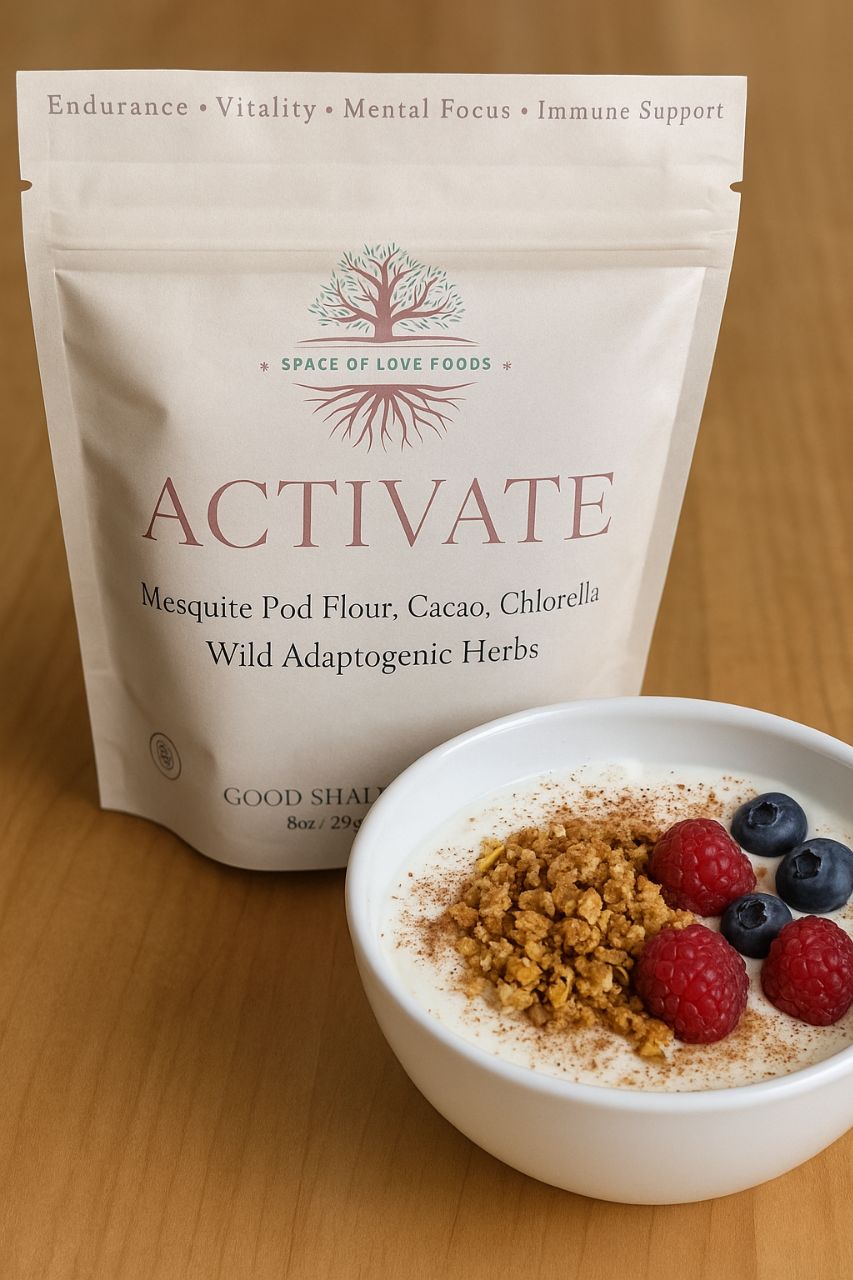
Mesquite is a truly unique superfood, offering deep nourishment and a rich cultural history. A member of the legume family, just like beans and lentils, mesquite produces long, seed-filled pods that are the edible and highly nutritious part of the plant.
Thriving in arid environments, mesquite trees are not only resilient but ecologically powerful. They help prevent soil erosion, improve soil health by fixing nitrogen, and support land restoration in dry, depleted areas.
What makes mesquite even more special is its naturally sweet, smoky flavor. It is a perfect low-glycemic sweetener that supports balanced blood sugar levels. The ground pods are rich in protein, dietary fiber, and essential minerals like calcium, magnesium, potassium, and iron. They are also high in lysine, an essential amino acid often missing in plant-based diets. The fiber content supports gut health and slows the absorption of sugars, making mesquite a functional food with real benefits.
For centuries, Indigenous tribes such as the Pima, Apache, and Tohono O’odham used mesquite pods as a staple food source. The pods were ground into flour and used to make nutrient-dense cakes, porridges, and even fermented drinks. Beyond nourishment, mesquite was considered sacred and medicinal, used in remedies, firewood, and ceremonial practices.
Often called a survival tree, mesquite symbolizes resilience, nourishment, and grounded sweetness. Growing in some of the harshest climates on Earth, it reminds us that true strength can be soft and sweet, and that healing can come from the most unexpected places.




